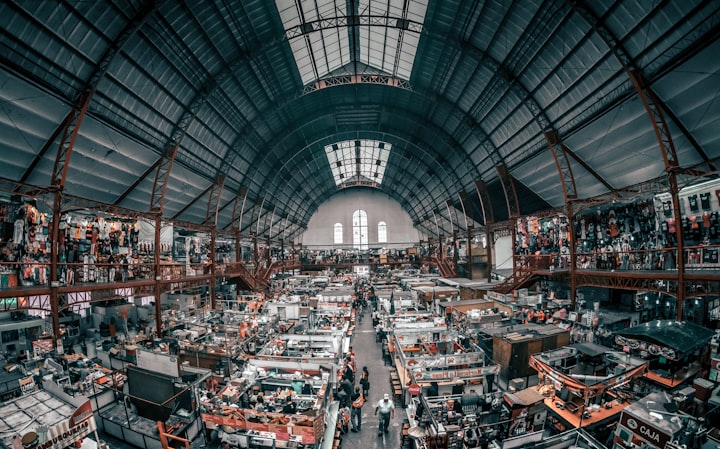Why Al Aqsa is the Key to Israel-Palestinian conflict
The Epicenter of Conflict

The Al-Aqsa Mosque Compound, situated in the heart of Jerusalem's Old City, is one of the most sacred and contentious sites on the planet. Its prominence in global news headlines is often due to the recurring episodes of violence that unfold here, serving as a flashpoint in the ongoing Israeli-Palestinian conflict. To truly comprehend the complexities of this region, one must delve into the rich historical, religious, and political significance that this site embodies. The city of Jerusalem itself holds immense importance as it is a convergence point for three major world religions: Islam, Judaism, and Christianity. These three faiths intersect at several holy sites within Jerusalem, with the Al-Aqsa Mosque Compound being a focal point of this convergence. To grasp its significance, one must first understand its various names and religious contexts. Referred to as the "Temple Mount" by Jews, Muslims know it as "Al-Haram Al-Sharif," meaning the Noble Sanctuary, or more commonly as the "Al-Aqsa Mosque Compound." The Compound consists of the Dome of the Rock, an Islamic shrine that holds particular importance for Muslims who believe that it was from here that the Prophet Muhammad ascended to heaven. Adjacent to it is the Al-Aqsa Mosque, which boasts a vast prayer hall with space for up to 5,000 worshipers. Its name is derived from a reference in the Quran to a mystical night journey by the Prophet Muhammad to the "furthest mosque," generally understood to be in Jerusalem. Consequently, the Al-Aqsa Mosque Compound ranks as the third holiest site in Islam, following Mecca and Medina.In Christianity, Jerusalem has biblical significance, and the Al-Aqsa Mosque Compound is tied to the Old Testament and the life of Jesus. However, for Judaism, this site holds unparalleled importance. It was home to two ancient Jewish temples, the first of which was destroyed by the Babylonians, and the second stood for almost six centuries until the Romans razed it in the first century. According to Jewish teachings, this mount is the prophesied location for a third Temple to be built when the Messiah, a savior figure, is sent by God.Historically, the Compound had been under Muslim control for approximately eight centuries and was off-limits to non-Muslims. Jewish law even forbade Jews from entering or praying inside the Temple Mount due to its immense holiness. This resulted in Jews praying at the Western Wall, believed to be a remnant of the Second Temple. The Temple Mount for Jews was a place of devotion with no imminent demands awaiting the Messiah.
However, a seismic shift occurred in 1967 during the Six-Day War when Israel took control of the Gaza Strip, West Bank, including East Jerusalem, and the Al-Aqsa Mosque Compound. Israel maintained the status quo, permitting the Islamic trust known as the "Waqf," under Jordanian administration, to oversee the day-to-day affairs of the site. In theory, the status quo allowed Muslims to pray and permitted dignified visits by non-Muslims, in coordination with the Waqf's authority. However, in practice, Israel's occupation of East Jerusalem and its significant security presence in the Old City led to the Israeli police, rather than Waqf officials, controlling access to the Compound. This transition became more explicit in the early 2000s following the second intifada, as Israel took control of security and increased the number of Jewish visitors to the site.This changing dynamic stirred tensions and accusations of violating the status quo. Violations included imposing restrictions on Muslim worship, age restrictions for entry, and increasing instances of Jewish prayer within the Compound. The actions of far-right groups and religious hardliners in Israel further fueled this situation. The Temple Mount movement, which aims to overturn the status quo, transformed from a fringe group to mainstream during the 1980s and 1990s. Presently, these groups, with their influence in Israeli politics, assert the sovereignty and supremacy of Jews over the entire region. For example, when Israel's new national security minister, Amar Ben-Gvir, entered the Al-Aqsa Compound, he asserted that limiting Jewish access was racist, a statement that generated significant international concern. The international community has closely monitored events at the Al-Aqsa Mosque Compound due to its potential to escalate tensions and ignite broader conflicts. For instance, a visit by then-opposition leader Ariel Sharon in the early 2000s triggered the second intifada, and clashes at the Compound during Ramadan sparked an 11-day Israeli-Gaza war in recent years. In conclusion, the Al-Aqsa Mosque Compound encapsulates a volatile mix of religious, historical, and political sensitivities, making it a microcosm of the Israeli-Palestinian conflict. The complexities surrounding this sacred site continue to shape the discourse in the region, with its status quo hanging precariously in the balance. Understanding the intricacies of this location is vital in comprehending the broader conflict and the challenges that persist in the pursuit of peace and stability in the Middle East.
About the Creator
Kiphustling
An explorer of words, weaving tales from the threads of imagination. 📚✨ Author of countless worlds and characters.🌍✍️ Let's embark on literary adventures together. #WriterLife #Storyteller #ImaginationUnleashed#






Comments
There are no comments for this story
Be the first to respond and start the conversation.